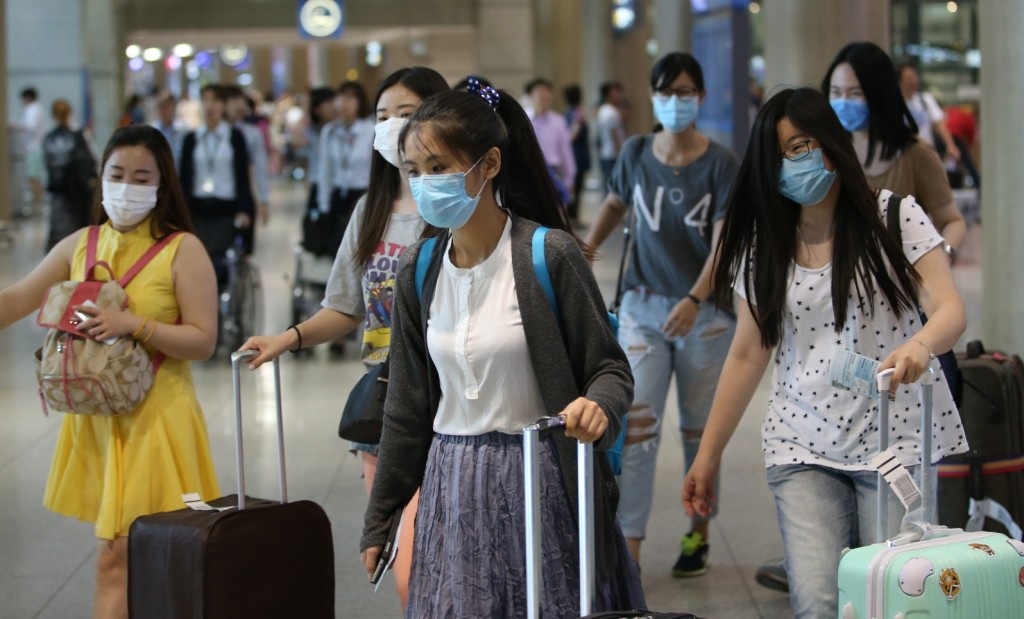- California Assembly OKs highest minimum wage in nation
- S. Korea unveils first graphic cigarette warnings
- US joins with South Korea, Japan in bid to deter North Korea
- LPGA golfer Chun In-gee finally back in action
- S. Korea won’t be top seed in final World Cup qualification round
- US men’s soccer misses 2nd straight Olympics
- US back on track in qualifying with 4-0 win over Guatemala
- High-intensity workout injuries spawn cottage industry
- CDC expands range of Zika mosquitoes into parts of Northeast
- Who knew? ‘The Walking Dead’ is helping families connect
CDC issues travel advisory for MERS outbreak in South Korea

A group of foreign tourists wearing facial masks arrives at Incheon airport, west of Seoul, on June 2, 2015, as South Korea is gripped by increasing cases of the Middle East Respiratory Syndrome. The state-run Korea Tourism Organization said about 2,500 Chinese and Taiwanese tourists have called off their visits to South Korea as of June 1 due to the virus scare. (Yonhap)
WASHINGTON, June 8 (Yonhap) — The U.S. Centers for Disease Control and Prevention have issued a travel advisory about the outbreak of the Middle Eastern respiratory syndrome (MERS) in South Korea.
The notice, posted on the CDC website Friday, put South Korea in the “Level 1″ or “Watch” category, the lowest of the three-step advisory system, which calls for practicing usual precautions and does not advise against traveling to the country.
Level 2 calls for enhanced precautions and Level 3 calls for avoiding nonessential travel.
“On May 20, the Republic of Korea reported its first laboratory confirmed case of Middle Eastern respiratory syndrome (MERS). As of June 5, 36 cases in the Republic of Korea have been confirmed by the World Health Organization, all linked to healthcare facilities with a confirmed MERS case,” the CDC said in the notice.
“All travelers can take these everyday actions to help prevent the spread of germs and protect against colds, flu, and other illnesses, including MERS,” such as washing hands often with soap and avoid touching eyes, nose, and mouth and avoiding close contact with sick people, it said.
A CDC official said later that MERS cases have the potential to spread further globally.
“MERS cases continue to occur, and we recognize the potential for MERS-CoV to spread further and cause more cases in the United States and globally,” the official said in an email to Yonhap News Agency, speaking on condition of anonymity.
Two MERS cases occurred in the U.S. last year, but the disease did not spread.
The U.S. National Institutes of Health have established an “interagency MERS-CoV medical countermeasures” working group to study medical countermeasures, the non-clinical, clinical, and regulatory pathways and challenges and the ability to manufacture medications or vaccines, the official said.
















middle
January 15, 2018 at 6:03 AM
WGBY | Public Television for Western New England